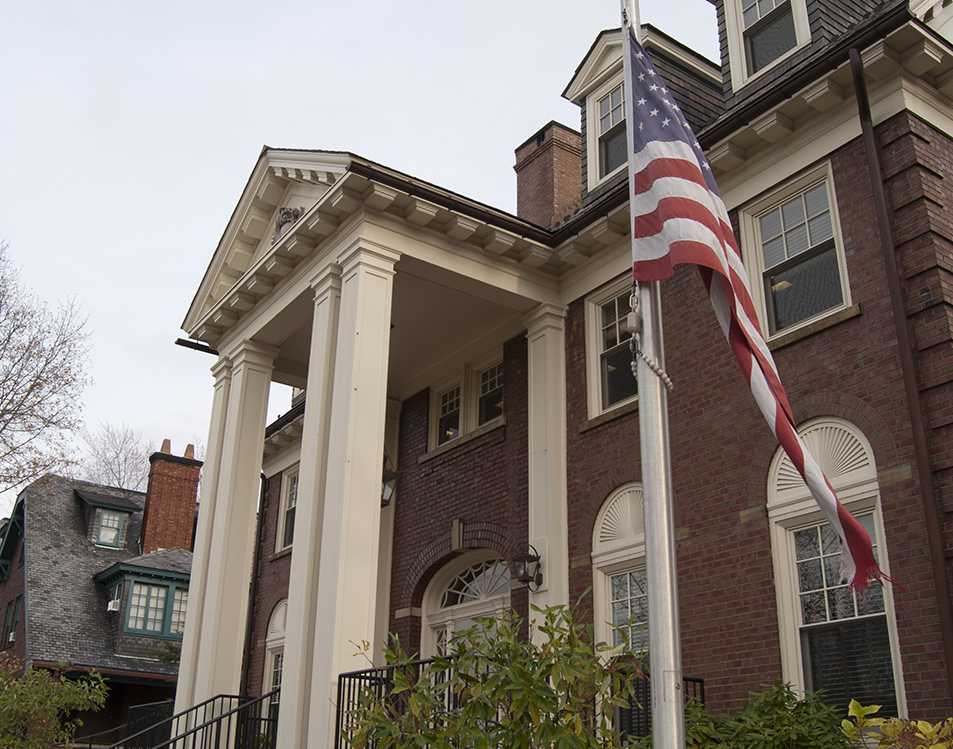So you’ve graduated, now what?
This is the question that graduate students Vincent Coe and Casey Albitz hope to answer for the many seniors who are anxious about May. Coe and Albitz, both Graduate Residence Mentors at Case Western Reserve University, are organizing an event called “The Grand Affair: Life After College Explained.”
The event, which will take place in the second floor of Thwing during community hour on Mar. 1, will provide free food and resources for seniors that will aid them in the transition from college life to the real world. While it was created to help transition seniors, the event is open to all students at CWRU.
“It’s never too early to start developing these skills,” said Coe. “Some skills, like personal budgeting, will always be useful.”
The event will be an interactive exposition and will primarily take place in the Thwing Ballroom. It will be divided into six sections, each with their own theme: “Tying Loose Ends,” “Moving Out,” “Rainy Days,” “The 9 to 5,” “Money, Money, Money, Money,” and “Life After 5.” In addition, the other rooms in Thwing’s second floor will provide resources for tax assistance, financial aid, and food.
“Tying Loose Ends” intends to help seniors ensure that they are ready for graduation and have a streamlined transition from the university to the working world. This session will include information about meeting graduation requirements, tips to help seniors graduate on time, handshaking and “elevator speech” etiquette, and the importance of email and thank you cards.
“Moving Out” intends to give advice to seniors about where they will be living, including apartment renting tips. A member of the Peace Corps will also be on hand to give advice on moving internationally.
“Rainy Days” will help stress the importance of having backup plans for when life does not go as expected. Unemployment, extra savings, and returning to school will be discussed.
“The 9 to 5” will stress the importance of a professional appearance and demeanor, including suit measurements and advice on how to act at professional dinners and events, with mocktails provided by The Spot.
“Money, Money, Money, Money,” as the name implies, will help seniors with important financial options and how to decide between the options. Key Bank will discuss checking and savings accounts, credit, stocks, mutual funds, and credit scores.
Finally, “Life After 5” will focus on the life of a senior years down the road, stressing the importance of staying connected and networking.
Coe and Albitz’s vision for the event is to give undergraduate and graduate students a snapshot of the real world.
“There are no do-overs in the real world,” said Coe. “We want to provide answers for tough questions like, ‘Now what do I do?’ or ‘what do I do once I get a job?’”
To that end, Coe and Albitz have enlisted the help of many CWRU and community resources to answer any questions seniors might have at this event.
“These resources are accessible to students, but sometimes students don’t know what to go to them for,” said Albitz.
“We want you to take advantage of everything you can while you’re here,” said Coe.
Coe, a graduate and second year law student at CWRU, admits that knowing some of the topics that will be discussed at the event would have benefitted him when he graduated from the University of South Carolina in 2007.
“Things like knowing the difference between checking and savings accounts and knowing apartment searching tips would’ve really helped me,” said Coe. “I hope to make the undergraduates less stressed than I was.”
Albitz, a graduate and first year sociology student at CWRU, feels the same as Coe.
“Even though I graduated from Case and went straight to grad school, I feel as though this kind of event would’ve helped me,” agreed Albitz. “Financial tips and knowing how to do things like elevator speeches are always beneficial.”
Ultimately, these two graduate students hope to prepare all students for life after college by showing them a glimpse of what’s ahead.
“I hope to help fill the gap between the classroom and the real world,” said Coe. “This will be like the real world, not taught in class.”


